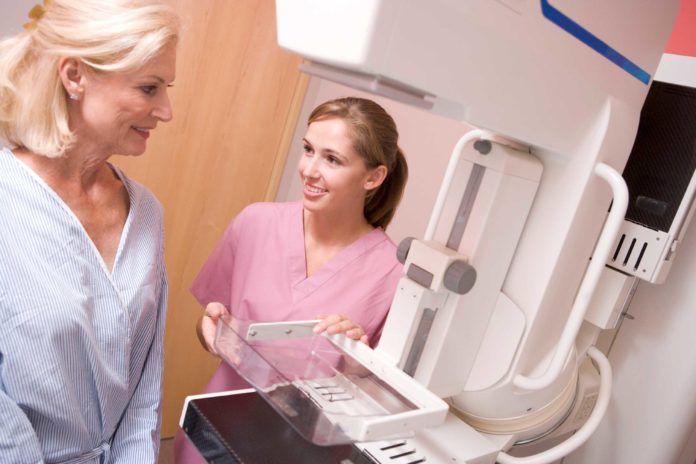While many women turn to breast enhancement pills to increase the size and attractiveness of their bust, you can make a lot of simple changes in your daily life to truly improve your breast health. There’s never been a more important time to focus your attention on developing healthy habits. Research by the American Cancer Societyshows that breast cancer is the second most common cancer found in American women, next to skin cancer. Knowing how to keep yourself healthy is one of the most important first steps you can take to reduce your future risk.
1. Exercise regularly.
It’s common knowledge that consistent exercise is extremely beneficial for your general health. Not only do you feel great after a brisk workout, but it also directly impacts your breast health. Studies have shown that working out at least four hours a week increases cardiovascular health, helps regulate blood sugar, and controls the hormones responsible for breast growth (which are also a factor in cancer growth). Maintaining an active lifestyle also helps you maintain a healthy weight; a prominent factor in cancer development. The more fat cells found in your body, the more estrogen you produce and the greater your risk of developing cancer.
2. Make tweaks to your diet.
A healthy, balanced diet is a must if you’re trying to improve your overall health, but it is especially important if you’re looking to improve your breast health. Eating plenty of fruits and vegetables is an integral part of a healthy lifestyle. While you consume the recommended 5 cups of fresh fruits and vegetables a day, you can concentrate what you eat on which foods will provide the most support to your bust. Try including foods that may help reduce your risk of cancer, such as dark green, leafy vegetables, foods rich in antioxidants, and small amounts of dark chocolate. Including foods rich in fiber in your diet has also been shown to be beneficial for breast health. These types of foods will help you eliminate waste and toxins from your body in a safe and natural manner. Finally, you might also consider limiting your red meat intake or switching to organic produce and dairy to reduce your exposure to potentially hazardous pesticides.
3. Check for changes.
Spotting any changes in breast size, shape and consistency is key to early detection of any problems with your breast health. Regular self-exams will allow you to notice any differences in your breast tissues and quickly get help from a medical professional in the event you suspect a problem. Exams should be conducted at least once a month. Things to look out for include: new or firm lumps, warmth or swelling, changes in skin color, or blood or fluid unexpectedly leaking from nipples. In addition, regular medical screenings will help your doctor identify any changes and conduct further exams if required. These exams may include a combination of a physical exam, a mammogram and/or MRI. For women over 45, the American Cancer Society recommends women receive a mammogram every two years, or every year if you’re over the age of 50. Be sure to inform your doctor if you’re considered a high-risk individual, i.e., if a parent, sibling or child has the BRCA1 or BRCA2 gene mutation. For these individuals, it is ideal to get screened every year, to include both an MRI and a mammogram ().
4. Everything in Moderation
Doctors agree that getting plenty of sleep is important to your health, but almost equally important to your breast health is limiting your alcohol intake to less than three drinks in one week. Consuming more than this could raise your estrogen level and increase your breast cancer risk by 15% or more, depending on how many drinks you consume. This is due to the fact that alcohol increases your estrogen levels and other hormones that contribute to breast cancer. Alcohol may also damage cell DNA and contribute to your cancer risk as well. If you’re out for a night on the town with friends, try substituting your alcoholic drink with a healthier alternative such as a mocktail or sparkling flavored water. You’ll be improving not only your breast health but you’ll consume fewer calories as well.
5. Supplement appropriately.
Various supplements are available that advertise the ability to promote healthy breast tissue. However, it’s important to know what ingredients to look for and why they might help. Recent studies have shown promising results for women who got at least 600 I.Us (international units) of Vitamin D a day. Getting a sufficient amount of this vitamin will help your body absorb calcium and help your body’s major systems (such as your immune and nervous systems) operate effectively. Vitamin D may also help prevent breast cancer cells from developing, ultimately reducing your cancer risk. You can increase the amount of Vitamin D your body is getting through several ways, such as making sure you’re getting enough direct sunlight, taking Vitamin D pills, or including Vitamin D rich foods in your diet. Ensure you’re discussing whether you’re getting enough Vitamin D with your doctor or whether you need an extra boost through one of these methods.
In addition to Vitamin D, an increase in omega 3 fatty acids may significantly reduce cancer risk. Studies show that omega 3s that come from fish oil may improve your immune system and prevent breast tumors from growing. To get the maximum benefits, consume a fatty fish (such as salmon, tuna or trout) two to three times a week. Fish oil tablets might also provide positive cancer prevention properties.
Although one in eight women will experience breast cancer in their lifetime, knowing the risk factors and changing your daily habits can help you improve your breast health and support your healthy tissues. The key for any of these tips is maintaining an active, balanced and healthy lifestyle in order to better support your future health.



















































